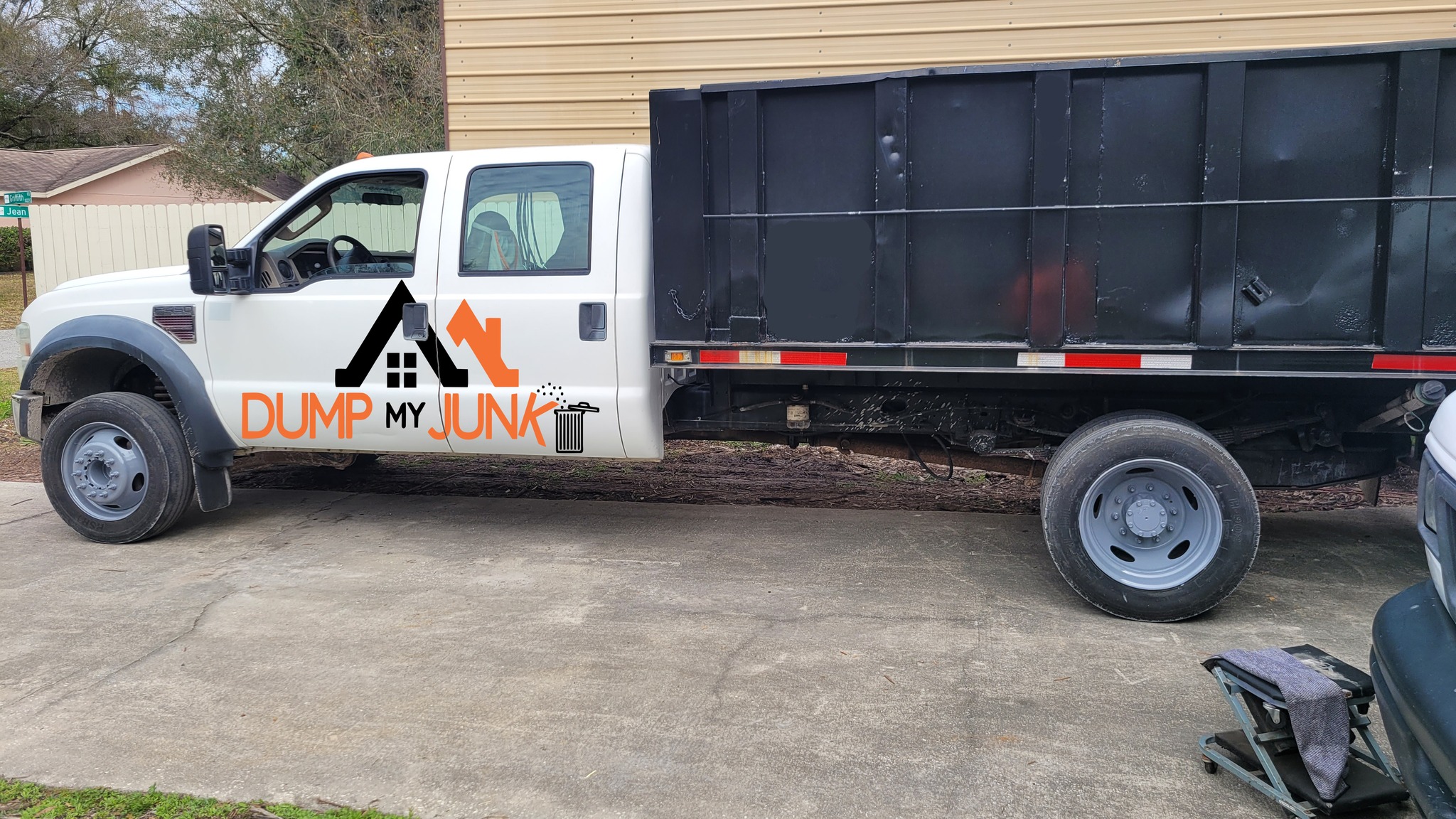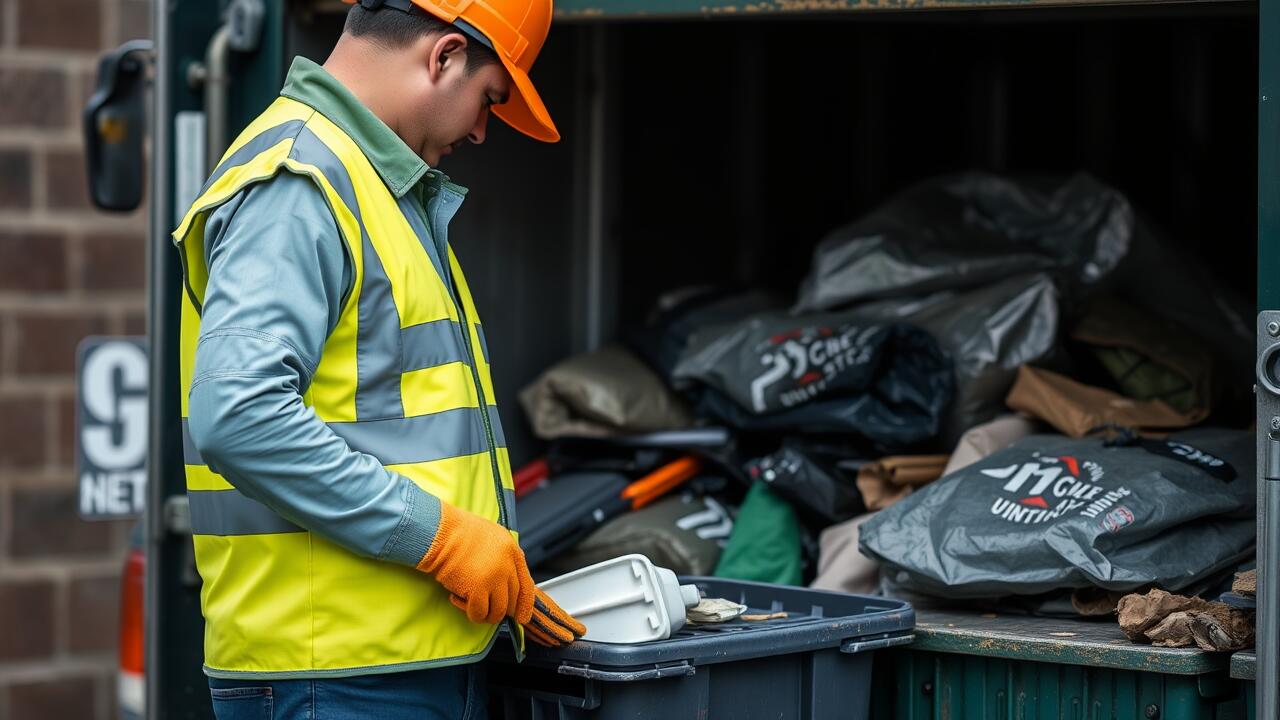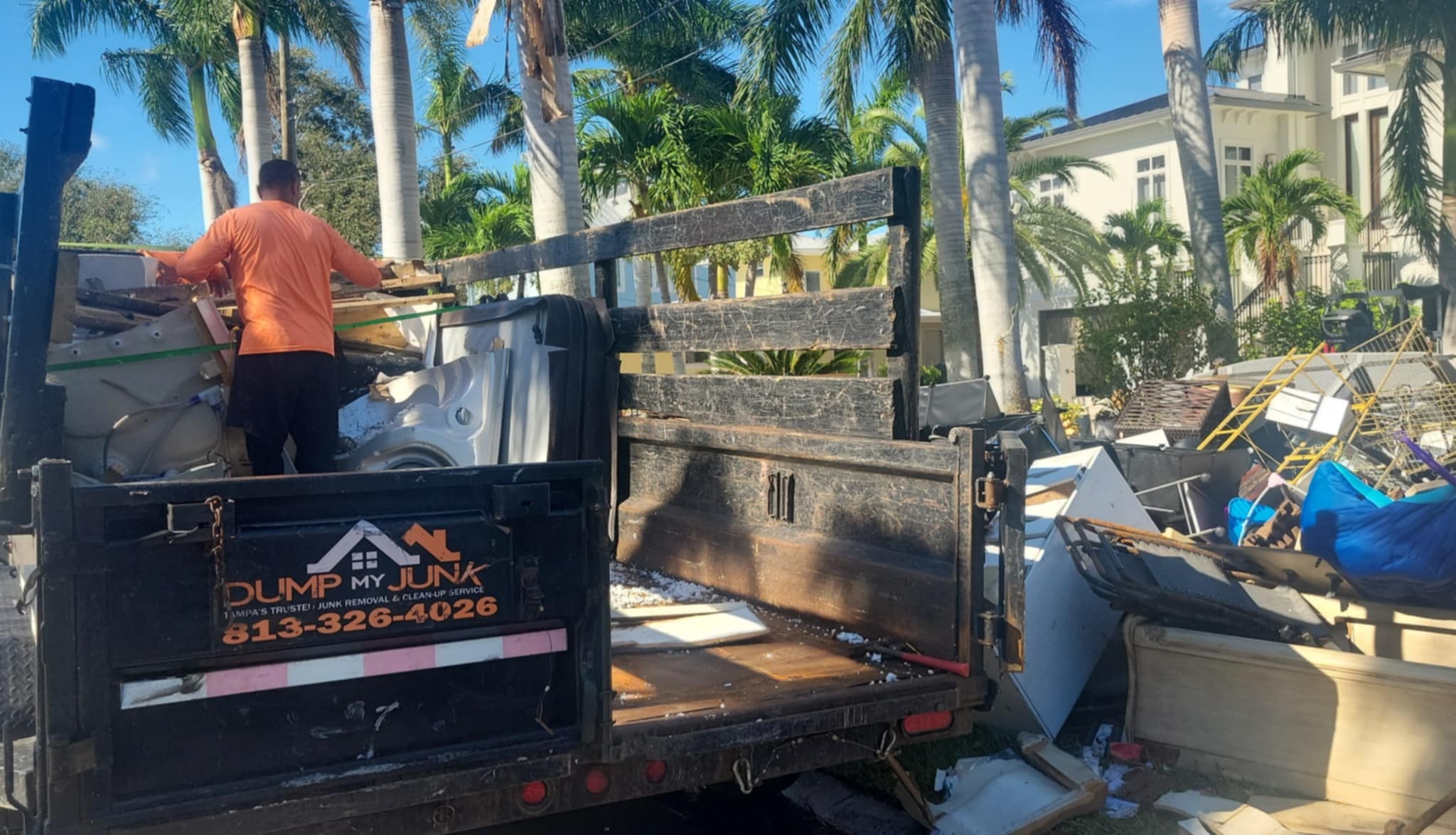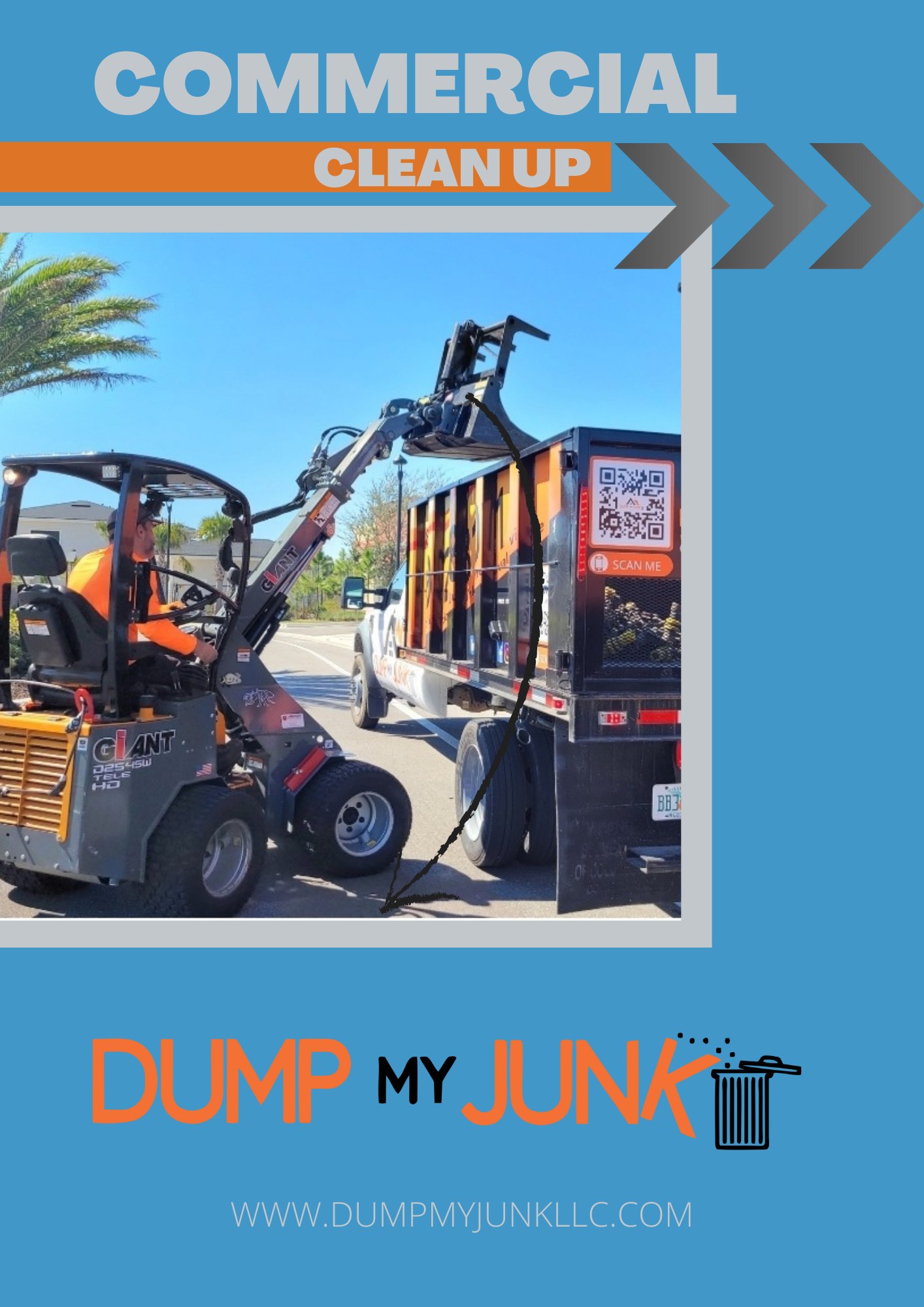
Recycling Opportunities for Commercial Waste
Recycling opportunities for commercial waste have expanded significantly in recent years, driven by increasing environmental awareness and regulatory pressures. Businesses are now encouraged to adopt sustainable practices that reduce the volume of waste sent to landfills. By implementing effective recycling programs, companies can recover valuable materials such as paper, plastics, metals, and organic waste. These materials can be processed and repurposed, minimizing waste and contributing to a circular economy.
Call for a Free Estimate 813-597-7922
Commercial garbage collection plays a crucial role in facilitating these recycling initiatives. Many waste management companies offer tailored solutions that support businesses in sorting, collecting, and processing recyclable materials. By partnering with these services, organizations can streamline their waste management processes while enhancing their sustainability efforts. Engaging in effective recycling not only benefits the environment but can also result in cost savings and improved corporate reputation.
Discover more here.
Materials That Can Be Recycled
A wide variety of materials can be recycled through commercial waste management programs. Common recyclables include paper products, cardboard, plastics, metal containers, and glass. Each of these materials has established recycling procedures that can reduce the volume of waste sent to landfills. Many businesses already implement these recycling practices, often facilitated by services specializing in Commercial Garbage Collection. These services streamline the process, making it easier for companies to sort and dispose of materials responsibly.
Additionally, some establishments are beginning to explore recycling options beyond the typical materials. For instance, electronics, textiles, and organic waste can also be recycled, thus expanding the potential for waste reduction. By engaging in recycling initiatives, businesses not only comply with regulations but also contribute to environmental sustainability. The role of Commercial Garbage Collection becomes crucial here, as it prioritizes the proper handling and processing of these diverse materials, ensuring they are diverted from landfills and reintroduced into the production cycle.
Call for a Free Estimate 813-597-7922
Cost Implications of Commercial Waste Management
Effective management of commercial waste carries significant cost implications that businesses must consider. These costs arise from a variety of sources, including collection fees, transportation expenses, and landfill charges. As companies aim to implement sustainable practices, the financial burden may shift due to varying expenses linked to recycling versus disposal. Understanding these components helps organizations make informed decisions regarding waste management strategies.
Budgeting for waste disposal requires a realistic assessment of current practices and potential changes. The need for regular Commercial Garbage Collection services adds to the expense, but investing in efficient waste management solutions can lead to long-term savings. Companies may also encounter hidden costs related to the handling of hazardous materials or regulatory compliance, which can impact overall financial planning. Evaluating waste output and exploring alternative disposal options are essential for effective budgeting.
Budgeting for Waste Disposal
Effective budgeting for waste disposal requires a comprehensive understanding of the various costs associated with commercial garbage collection. Businesses need to consider factors such as the frequency of pickups, the volume of waste generated, and the specific services provided by waste management companies. Establishing a clear waste disposal plan can help identify these costs and facilitate better financial forecasting. As awareness of environmental responsibility grows, many companies are also incorporating sustainability practices into their budgeting process, which can influence the choice of waste management partners.
Call for a Free Estimate 813-597-7922
In addition to direct costs, hidden expenses related to waste disposal can significantly impact a company’s bottom line. These may include fines for non-compliance with regulations, costs from inefficient waste practices, and expenses linked to improper disposal methods. To avoid these pitfalls, businesses should conduct periodic audits of their waste management practices. Effective tracking and management of waste can lead to improved budgeting decisions and ultimately reduce the overall costs associated with commercial garbage collection.
Innovations in Commercial Waste Management
The landscape of commercial waste management is continually evolving, driven by the need for efficiency and sustainability. Innovations such as smart waste bins equipped with sensors are gaining traction. These bins monitor waste levels and optimize collection schedules, reducing fuel consumption and labor costs associated with commercial garbage collection. Advanced software solutions also help businesses track their waste generation patterns and identify areas for reduction, making waste management more strategic and informed.
Additionally, the rise of partnerships between tech companies and waste management services is fostering new approaches. Companies are developing apps that allow businesses to schedule pickups, report issues, and receive real-time data on their waste disposal practices. These advancements streamline processes and enhance transparency, empowering businesses to engage more actively in their waste management strategies. Enhanced recycling options and composting facilities also play a crucial role in minimizing landfill contributions, further reflecting a shift toward more responsible waste management in the commercial sector.
New Technologies and Approaches
Innovations in commercial waste management have significantly changed how businesses handle their waste. Emerging technologies focus on efficiency and sustainability, ensuring that waste is processed in a way that minimizes environmental impact. Companies are increasingly adopting smart waste solutions, which utilize IoT sensors to monitor waste levels. This data allows businesses to optimize collection schedules, reducing unnecessary pickups and associated costs. These systems can improve the overall effectiveness of commercial garbage collection practices.
In addition, advancements in recycling technology are enabling businesses to process materials that were previously considered non-recyclable. Innovations like automated sorting systems and AI-driven material identification enhance the ability to separate recyclables from general waste. This not only helps in managing commercial waste more effectively but also contributes to a circular economy. By implementing these new technologies and approaches, businesses can reduce their reliance on landfills and promote environmentally responsible waste management strategies.
Call for a Free Estimate 813-597-7922
FAQS
What is considered commercial waste?
Commercial waste refers to waste generated by businesses during their operations, which can include materials from offices, retail spaces, and manufacturing facilities.
How can businesses identify recyclable materials in their commercial waste?
Businesses can identify recyclable materials by segregating waste streams and assessing items such as paper, cardboard, plastics, metals, and electronics that are commonly accepted in recycling programs.
What are the cost implications of commercial waste management?
The cost implications of commercial waste management can include disposal fees, recycling costs, and potential savings from reduced waste generation and recycling programs, which can lead to lower overall waste management expenses.
What budgeting strategies can businesses use for waste disposal?
Businesses can implement budgeting strategies by assessing their waste generation levels, estimating disposal costs, exploring recycling opportunities, and setting financial goals for waste reduction initiatives.
What innovations are currently shaping commercial waste management?
Innovations in commercial waste management include advancements in recycling technologies, waste-to-energy processes, smart waste tracking systems, and the development of sustainable packaging solutions.
Call for a Free Estimate 813-597-7922


